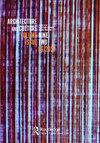密斯·凡·德罗的《时代》:普遍性与个体性之间的包康斯特
IF 1.1
0 ARCHITECTURE
引用次数: 1
摘要
摘要本文探讨密斯·凡·德罗的实践与教育学中包昆主义与Zeitwille的关系,以及文明与文化的概念对其教育哲学和设计实践的意义。它以对都市生活的否定和建筑空间的场景为出发点,探讨了乔治·西美尔的客观性概念如何与密斯对文明的理解联系起来。它的关键观点是认识到Mie的实践和教学法是由建筑应该捕捉文明的驱动力这一理念所指导的。本文还总结了芝加哥密斯课程的基本概念。它旨在强调Zeitwille和非人格化在密斯·凡·德罗思想中的重要性,并在现代主义时代梳理非人格化和自主个体角色之间的紧张关系。本文章由计算机程序翻译,如有差异,请以英文原文为准。
Mies van der Rohe’s Zeitwille: Baukunst between Universality and Individuality
Abstract The article explores the relationship between Baukunst and Zeitwille in the practice and pedagogy of Ludwig Mies van der Rohe, and the significance of the notions of civilization and culture for his philosophy of education and design practice. Focusing on the negation of metropolitan life and mise en scene of architectural space as its starting point, it examines how Georg Simmel’s notion of objectivity could be related to Mies’s understanding of civilization. Its key insight is to recognize that Mie’s practice and pedagogy was directed by the idea that architecture should capture the driving force of civilization. The paper also summarizes the foundational concepts of Mies’s curriculum in Chicago. It aims to highlight the importance of the notions of Zeitwille and impersonality in Mies van der Rohe’s thought and to tease apart the tension between the impersonality and the role of the autonomous individual during the modernist era.
求助全文
通过发布文献求助,成功后即可免费获取论文全文。
去求助
来源期刊

Architecture and Culture
ARCHITECTURE-
CiteScore
0.80
自引率
0.00%
发文量
25
期刊介绍:
Architecture and Culture, the international award winning, peer-reviewed journal of the Architectural Humanities Research Association, investigates the relationship between architecture and the culture that shapes and is shaped by it. Whether culture is understood extensively, as shared experience of everyday life, or in terms of the rules and habits of different disciplinary practices, Architecture and Culture asks how architecture participates in and engages with it – and how both culture and architecture might be reciprocally transformed. Architecture and Culture publishes exploratory research that is purposively imaginative, rigorously speculative, visually and verbally stimulating. From architects, artists and urban designers, film-makers, animators and poets, from historians of culture and architecture, from geographers, anthropologists and other social scientists, from thinkers and writers of all kinds, established and new, it solicits essays, critical reviews, interviews, fictional narratives in both images and words, art and building projects, and design hypotheses. Architecture and Culture aims to promote a conversation between all those who are curious about what architecture might be and what it can do.
 求助内容:
求助内容: 应助结果提醒方式:
应助结果提醒方式:


